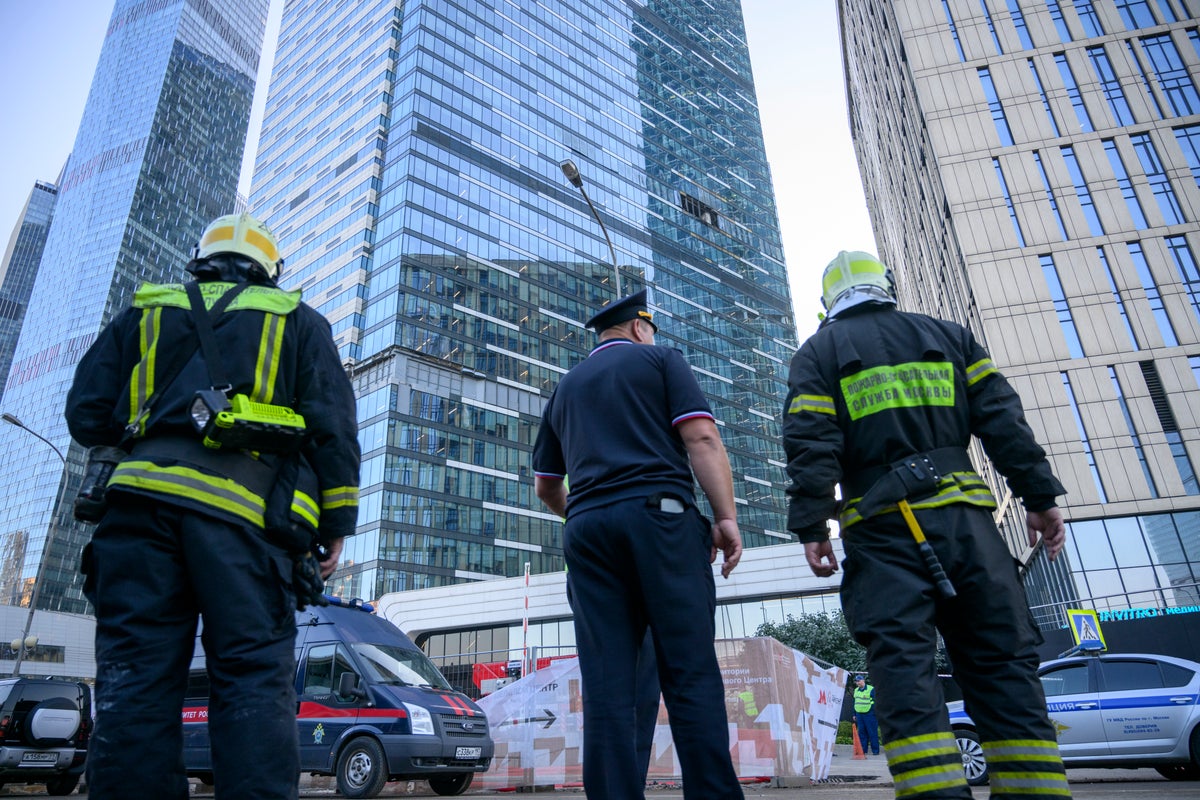Mapped: The latest strikes on Ukraine and Russia as war rages on


Ukrainian president Volodymyr Zelensky has cheered the recent flurry of drone strikes on Moscow as evidence that Vladimir Putin’s illegal invasion of his country is backfiring and that its consequences are becoming ever clearer to the Russian people.
“Gradually, the war is returning to the territory of Russia – to its symbolic centres and military bases, and this is an inevitable, natural and absolutely fair process,” he said in a video address from the western city of Ivano-Frankivsk.
Russia’s defence ministry conceded on Sunday (30 July) that a 50-storey building containing the offices of a number of government agencies and a shopping precinct in the capital’s western Moskva-Citi business district were both hit by drone strikes it blamed on Ukraine, claiming to have brought down three more devices.
Then, on Tuesday (1 August), the same high-rise was struck again by more drones, with the Kremlin again claiming to have jammed others.
Meanwhile, a police station in Trubchevsky in the Bryansk region of western Russia has also been targeted in recent days, as has an administrative building in Russian-occupied Donetsk – that dramatic explosion caught on a motorist’s dashboard camera.
Expressing a similar sentiment to Mr Zelensky in the wake of the blasts was Ukrainian air force spokesman Yurii Ihnat, who said: “All of the people who think the war ‘doesn’t concern them’ – it’s already touching them.
“There’s already a certain mood in Russia: that something is flying in, and loudly. There’s no discussion of peace or calm in the Russian interior any more. They got what they wanted.”
Kyiv has largely preferred to remain coy about its activities rather than take responsibility but there is no denying that the retaliatory strikes against the enemy have coincided with the launch of its spring counteroffensive.
That long-anticipated shift to the frontfoot has also come alongside a period of turmoil at the top of Russia’s military establishment caused by Yevgeny Prigozhin’s extraordinary aborted mutiny of 24 June, seemingly a protest against his Wagner Group mercenaries being denied the ammunition and resources they need to be able to wage Mr Putin’s war effectively.
Without confirming or denying Ukrainian involvement in the recent assaults on targets within Russia, Mr Zelensky’s adviser Mykhailo Podolyak tweeted on Tuesday that the invader “is rapidly getting used to a full-fledged war, which, in turn, will soon finally move to the territory of the ‘authors of the war’ to collect all their debts…”
He continued: “Everything that will happen in Russia is an objective historical process. More unidentified drones, more collapse, more civil conflicts, more war.”
Despite Kyiv’s successes – whose strategic impact has, in truth, so far been negligible – Ukraine itself has also remained under siege, with heavy shelling seen lately in Kherson and drone strikes reportedly hitting civilian targets, including a college dormitory in Kharkiv, the country’s second city, in the early hours of Tuesday morning.
The cities hit by strikes in both Ukraine and Russia in late July and August 2023
(The Independent/Datawrapper)
Volodymyr Tymoshko, the northeastern town’s mayor, called it a “very difficult night” and wrote on Telegram: “One of the drones destroyed two floors of a dormitory. A fire broke out and emergency services are attending.”
Missile strikes have also been reported in Sumy and in Zaporizhzhia in recent days and in Mr Zelensky’s home town of Kryvyi Rih, a target surely chosen to cause the president maximum personal anguish.
At least six people were killed when ballistic missiles struck a school building and a residential tower block, a five-year-old girl among the dead, while dozens more were wounded. Mr Zelensky said that as many as 350 people were involved in the emergency rescue effort, which is still ongoing.
The city was last attacked in June, when another 11 residents were killed.
Since the war began 17 months ago, Russian missiles have taken out civilian homes, schools, hospitals, churches, power plants and even a famous Holocaust memorial in Ukraine – and the latest wave of retaliation is only likely to invite a further escalation.
As the journalist Tim White told The Independent in late May when Moscow was last hit by drone strikes attributed to Ukraine: “Putin’s only response is violence, we’ve seen it time and time again.”
xnxx,
xvideos,
porn,
porn,
xnxx,
Phim sex,
mp3 download,
sex 4K,
Straka Pga,
gay teen porn,
Hentai haven,
free Hentai,
xnxx,
xvideos,
porn,
porn,
xnxx,
Phim sex,
mp3 download,
sex 4K,
Straka Pga,
gay teen porn,
Hentai haven,
free Hentai,




